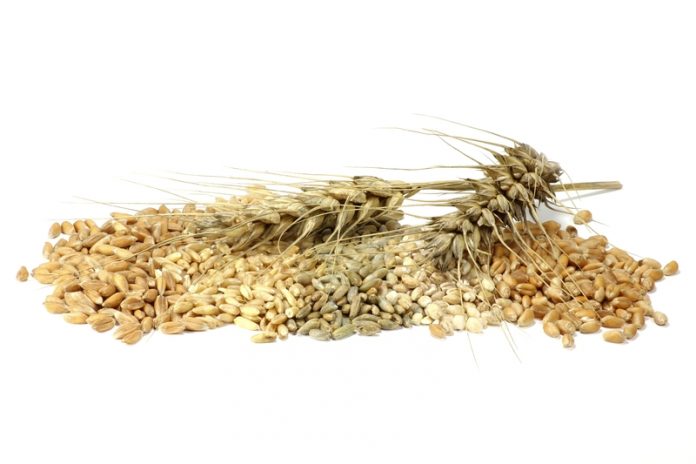Tim Isaac, Head of Arable at the Agriculture and Horticulture Development Board shares his thoughts on research into the cereals & oilseeds sector
When it comes to the cereals and oilseeds sector, there are a variety of programmes and tools AHDB has put together to enable the delivery of key objectives.
AHDB has three core research areas in cereals and oilseeds comprising:
- Understanding the genetic potential of new cereal and oilseeds varieties, the recommended lists;
- Understanding soil health and plant nutrition and;
- Crop protection, to evaluate new methods of monitoring, prevention and control of crop pests and diseases.
These three areas provide outcomes in their own right, but together they provide a valuable resource for integrated crop management based on robust independent information. AHDB, through its links to the research community, growers and end users, can provide an important linkage to ensure innovative research ideas can be tried and tested for the benefit of the whole industry.
Confidence in the independent evaluation of new varieties is a good example, leading to faster uptake of new varieties with good quality benefits to the end user and better agronomic and disease resistance to the farmer.
As part of AHDB’s soils research, AHDB and the British Beet Research Organisation (BBRO) announced an ambitious new research partnership to develop practical soil biology management guidance, worth £1 million. The five-year partnership looks to improve on-farm understanding of soil health by benchmarking current academic and industry knowledge, developing and validating indicators of soil biology and soil health in research trials and integrating a far-reaching knowledge exchange programme throughout the five-year programme. The £1 million project is part of the AHDB GREATsoils programme, complementing a £1.5 million initiative looking at soil structure.
In addition to longer-term research, AHDB has to be able to respond and move quickly in an ever-changing environment. Issues can suddenly occur which require a rapid response to provide new information to inform the industry across the supply chain. This may include a new disease outbreak, loss of important products, or changes in quality requirements by end users, usually as a consequence of changes in legislation.
Understanding plant pests, weed and disease epidemics, including challenges associated with new threats, resistance and a reduction in agrochemicals to manage them is a situation which requires a systems approach. Research tends to focus on individual components, which is important to understand, but the practical cost-effective solutions require a whole farm approach based on crop rotations over several years.
AHDB, with its expertise both in applied research and an understanding of growers’ businesses, is in a good position to help farmers deal with future challenges.
Its Farm Excellence Platform inspires the industry to improve performance and succeed through farmer-to farmer knowledge exchange. For the arable sector, this includes Strategic Farms, Monitor Farms, Arable Business Groups and technical events across the UK.
Monitor Farms bring together groups of like-minded farmers who wish to improve their businesses by sharing performance information and best practice around a nationwide network of host farms. AHDB organises and facilitates the meetings for farmers, who own and operate the scheme – by farmers, for farmers. Monitor Farms also incorporate the use of AHDB’s benchmarking tool, Farmbench, throughout their three-year term to track and improve performance.
A key connection between research and knowledge exchange is where knowledge gaps are identified in on farm activity and fed back to the research community for further analysis and guidance. For example, the significant rise in interest in no-till establishment systems led to a three-month review published in April 2018 – AHDB was also able to conclude that there is insufficient evidence to change autumn nitrogen guidance for no-tilled cereal and cover crops.
Other knowledge gaps can be addressed on a farm. Some Monitor Farmers are investigating how different spring barley varieties perform under different conditions. Different varieties from across northern Europe are being grown on farms across the UK alongside more conventional options. The aims are twofold – firstly to look at the resilience of different varieties in different conditions and secondly to challenge growers to get the most out of their crops.
These are just a few examples of the huge range of work that AHDB is doing to inspire British farmers to be more competitive and resilient in light of the changes that lay ahead. They clearly demonstrate that the key to achieving this is by accelerating innovation and productivity growth through coordinated R&D and knowledge exchange.
The Agriculture and Horticulture Development Board (AHDB) is a statutory levy board, funded by farmers, growers and others in the supply chain and managed as an independent organisation (independent of both commercial industry and of government). AHDB’s purpose is to inspire our farmers, growers and the industry to succeed in a rapidly changing world. Our vision is for a world-class food and farming industry inspired by and competing with the best.
This is summarised in AHDB’s four core priorities:
Inspiring British farming and growing to be more competitive and resilient;
- Accelerating innovation and productivity growth through coordinated R&D and knowledge exchange;
- Helping the industry understand and deliver what consumers will trust and buy and;
- Delivering thought leadership and horizon scanning.
Tim Isaac
Head of Arable
Agriculture and Horticulture Development Board
Tel: +44(0)24 7 669 2051











